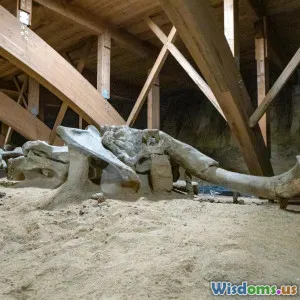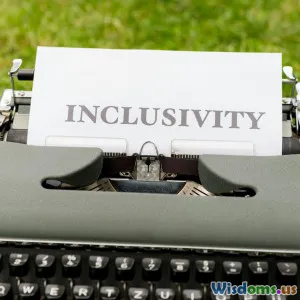
استكشاف تأثير الثقافة على المجتمع اليوم
(Exploring the Impact of Culture on Society Today)
5 मिनट पढ़ें اكتشف كيف تشكل الثقافة Norms الاجتماعية، والسلوكيات، والقيم في عالم اليوم. (0 المراجعات)
Exploring the Impact of Culture on Society Today
Culture is an all-encompassing term that embodies the beliefs, practices, values, and art of a particular group. It influences our behavior, shapes our perceptions, and serves as the backbone of societies across the globe. In our increasingly interconnected world, understanding the impact of culture on society is more relevant than ever. This article will explore how culture shapes societal norms, fosters community, and influences individual identity.
The Role of Culture in Shaping Identity
One of the most significant ways culture impacts society is through identity formation. From a young age, individuals are immersed in their cultural environment, which informs their values, beliefs, and behaviors. For example, in collectivist cultures, such as those found in many Asian societies, the emphasis is on community and familial ties. This contrasts sharply with individualistic cultures, like those in the United States, where personal achievement and independence are celebrated.
Cultural Narratives and Personal Stories
Cultural narratives play a crucial role in shaping personal identities. These narratives are often conveyed through storytelling, art, and traditions, allowing individuals to connect with their heritage. For instance, Native American storytelling traditions preserve history and wisdom while fostering a sense of belonging among community members. Such cultural expressions help individuals find their place in society, reinforcing both personal and collective identities.
Community Cohesion and Social Dynamics
Culture also plays a pivotal role in fostering community cohesion. Shared cultural practices, such as festivals, rituals, and communal meals, create a sense of belonging and unity. These events allow individuals to connect with one another, promoting social bonds and mutual understanding. In multicultural societies, cultural exchange can enhance these dynamics further, as diverse groups share their traditions and learn from one another.
The Importance of Cultural Diversity
Cultural diversity adds richness to any society, offering a variety of perspectives and experiences. Engaging with different cultures can promote tolerance and empathy, essential traits in an increasingly globalized world. For example, international cuisines introduced to local communities can lead to greater appreciation of different cultures while fostering social interactions among residents.
Cultural Influence on Social Norms
Social norms are the unwritten rules that govern behavior in society, and culture is a primary source of these norms. Factors such as gender roles, family structures, and ethical values are deeply rooted in cultural contexts. For instance, in many Western societies, individual rights and freedoms are prioritized, while in some Middle Eastern cultures, community and familial obligations may take precedence.
The Impact of Globalization
Globalization has further complicated the relationship between culture and society. While it fosters the exchange of ideas and cultural practices, it can also lead to the homogenization of cultures, threatening local traditions. The rise of the internet and social media has accelerated this process, enabling the rapid spread of cultural phenomena. For instance, the popularity of K-pop globally illustrates how one culture can influence others, creating new cultural dynamics.
Conclusion
In conclusion, the impact of culture on society today is profound and multifaceted. It shapes our identities, influences social norms, and fosters community cohesion. As we navigate an increasingly interconnected world, recognizing and celebrating cultural diversity becomes essential in promoting understanding and harmony among different groups. By embracing our differences, we can build a more inclusive society that values the richness of cultural heritage.
Understanding the intricate relationship between culture and society not only enriches our lives but also equips us to engage thoughtfully in an ever-evolving global landscape.
قيّم المنشور
تقييمات المستخدم
منشورات أخرى في الثقافة والمجتمع
المنشورات الشائعة




















